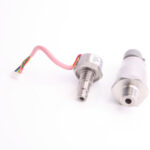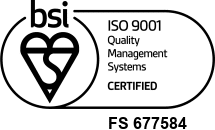As many pressure sensors are manufactured either fully or partly from stainless steel, it is advisable to consult a corrosion resistance data list covering types 316, 302, 304, 403, 410 and 430. Such a list will allow you to check compatibility with your media and offer an indication of the service life that can be expected.
However, many outside variations can be encountered under service operating conditions, such as fluctuations in temperature, impurities in the materials being processed and local variations in concentrations etc.
Fabrication problems such as welding, brazing and heat treatment must also be considered in selecting the right type of stainless steel. The design criteria must be studied as they also play a part in the selection.
To ensure corrosion resistance, it is important that sufficient access is available for equipment to be properly cleaned. Crevices and sharp corners should be avoided, welds should be ground smooth etc.
Materials testing
In view of all these factors, it is recommended that wherever possible, samples of different stainless steels should be subjected to actual operating conditions for evaluation before application to the end product.
There is a simple test to establish whether a piece of steel is in the 300 or 400 series: 300 series stainless steel is magnetic, 400 series is not.
Always remember that some sensors are built using a combination of materials: for example a ceramic pressure capsule sealed with a Viton O-ring in a 316 stainless-steel housing. In such cases it is essential to check that all three parts are compatible with the media or environment of the intended application.
Other engineering notes in this series cover allied concepts such as media compatibility, and should be read in conjunction with this article to provide a fuller picture.
Read more: Index to all of our Technical Notes on Pressure
Have a pressure application you want to discuss? Let us call you…
Why Us?
- Suppliers of top quality strain gauge sensors and transducers to every corner of industry – UK and worldwide
- Over 100 years of expert transducer knowledge
- Our high quality products all come with a 3 year warranty





